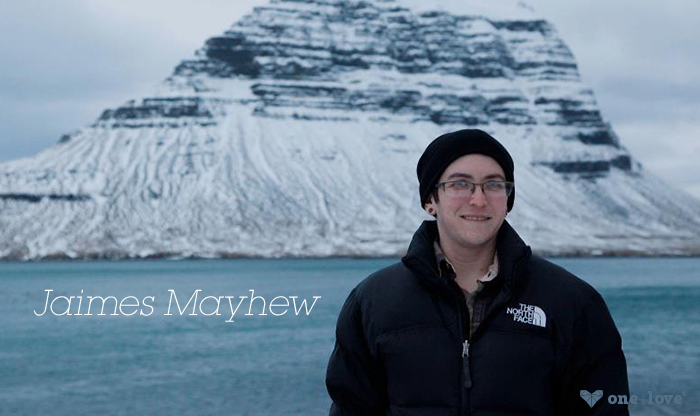
Jaimes Mayhew, Infinitely Interdisciplinary Artist
What are some of your artistic obsessions? Questions you can’t keep from asking, dark art-alleyways you can’t resist?
I am currently knee-deep in an ongoing, interdisciplinary series called the Autonomous Energy Research Lab. It started as a project about electricity production and consumption and the desire for energy “independence.” It has since branched out to include land use, especially as it relates to energy production — and I have found myself thinking about the similarities between the ways that humans view the productivity of both bodies and land in a kind of parallel way. As a transgender person who has often been at odds with the ways that I am perceived and the ways I perceive myself, I find myself now trying to delve into the complexities of what I call the ecologies of perception, and use this as a way out of accepting cultural perceptions of “the way things are.”
I was raised out West in Colorado, and grew up in a family of geologists, surveyors, and cartographers who (mostly) worked for mining companies, and grew up with a specific understanding of the way that land is acquired and used. Obviously, a mining company values land for the capital it can produce, and the history of land in the American West is based on first taking land away from those who lived on it, then giving it to people who will assess (monetary production) value. On the same token, land is also valued for its beauty, and is photographed and set aside for preservation, for enjoyment (for humans) and for spectacle (for humans). The perception of a landscape is a complex ecology, and is largely driven by capitalism, but I believe that new ideas can be introduced to these ecologies that have the potential to make toxic ideas extinct.
Society assesses the value of people in a parallel way. Our society tends to value a human for the capital the person can produce. Often the history of a human’s family is directly related to the potential capital that can be mined from that human. But it is, of course, much trickier with bodies than it is with land. Humans have to be oppressed in order to produce profit for those who assign value. The mining of bodies for profit is a delicate balance of pushing down and pushing in a direction that can be perceived to be forward. Of course, people are also valued for beauty, enjoyment, and spectacle, and often this is also viewed in terms of capital (or, alternately, status). The perception of a person is a complex ecology, and is largely driven by capitalism in our culture, but I believe that new ideas can be introduced to these ecologies that have the potential to make toxic ideas extinct. I take inspiration from eco-feminism and newer writings about queer ecologies.
Infinitely small things to say about the Transgender Bathroom Dedication series?
This project came out of a guerrilla exhibition in the bathrooms at the MFA Boston a few years ago. The Institute for Infinitely Small Things was invited to participate in the exhibition. This was just after Chrissy Polis had been attacked in Maryland, so making plaques that recognize crimes against transgender people seemed obvious, especially in the much contested area of bathrooms. I have put this project on the back burner, but am always open to loaning out the plaques to institutions who would like to dedicate their bathrooms to transfolk for a period of time.
The U.S. Department of Energy has decided to tap The Autonomous Energy Research Lab to light the way forward. Initial recommendations for the DOE?
Wow. There are so many things! I am going to be overly optimistic and idealistic with this question, because, why not?
I would start with re-defining the terms “renewable” and “clean” as they relate to energy production, and make the terms “green” and “sustainable” illegal. There is this misconception that all of these terms should be/are related, and that they all are somehow good, but that’s all marketing. Trash should not be a renewable source. Water should also not be considered renewable. Coal is not clean.
I would advise that a group of artists serve on a board that oversees all of these terms, and holds corporations related to energy production accountable for transparency in energy marketing since artists are trained to be experts in perception and would be most qualified for this job. The goal of this board would be to make sure that the public is aware of energy production and consumption habits in the U.S., without snake oil salesman slickness.
Next, I would advise that the board mentioned above oversee new regulations stating that polluting power plants in close proximity to people’s homes be shut down. Reparations for having lived near such plants would be paid. Better ways of producing energy will be implemented through a program that redirects military funds to prioritizing the health of U.S. residents.
Power plants that contribute to the toxicity of our air will be very heavily taxed, but would be eligible for a “Bad Power Plant Buyback Program” that allocates funds for building and supporting new energy infrastructure.
Lastly, I would recommend that the U.S. government fund a large-scale project that would provide home energy production kits at a discounted rate through a coupon program for each household in the U.S., much like the coupon program for digital TV converter boxes a few years ago. These kits would make it possible for every household to produce a small amount of electricity through solar panels, exercise equipment modification, or a variety of other means. The goal of this project would be to help households produce enough electricity for televisions, computers, tablets, and phones to run, if not more.
Does The Failure Support Group have any tonics for perfectionists?
Well, The Failure Support Group is a project first started by Platform2 in Boston, and then used as a structure for a support group for failed art projects at the Transmodern Festival in Baltimore. The group supports the lessons learned from failed projects, and we’ve discussed taking on something that is too big in scope down to the impossibility of predicting the public. This project largely sought to discuss the shortcomings of post-studio practices, meaning that the practice is actually in public, versus perfecting a painting in the privacy of one’s studio. I think that a past-studio practice might be a good tonic for a perfectionist, because one soon learns that life can interrupt art.
Pose a question to yourself and answer it.
Any advice for younger artists?
I think about this a lot because I spend a large part of my time teaching college students. I know that I would not be who I am without the influence of all of the experiences I had when I was younger. In my early twenties, I fumbled through helping to produce DIY circus events with friends in Seattle, and learned the value of building communities through creative expression. I serendipitously began working with a performance research collective in Boston while studying for a film degree, and working with this group (The Institute for Infinitely Small Things) proved to be the most transformative experience I have ever had as an artist.
I wasn’t concerned about the narrative of what I was doing, but was instead following my desire. I tried out a lot of things, and kept the things that fit best along the way. My advice would be to be open to what you want, try new and unfathomable things, listen to the people around you, and make sure that others listen to you.
Photo credit: Jessica Harvey

Recent Comments